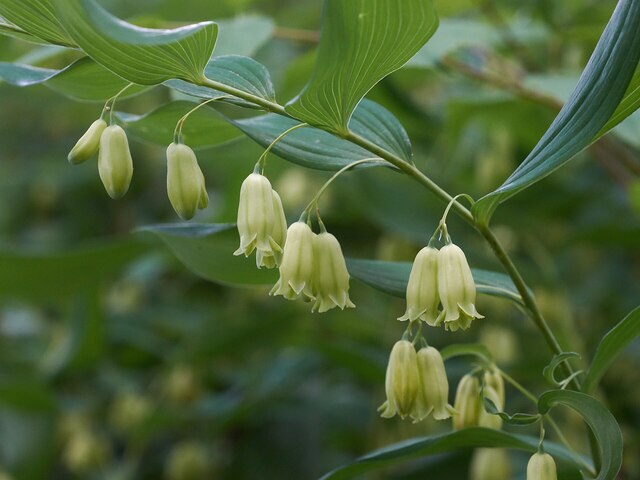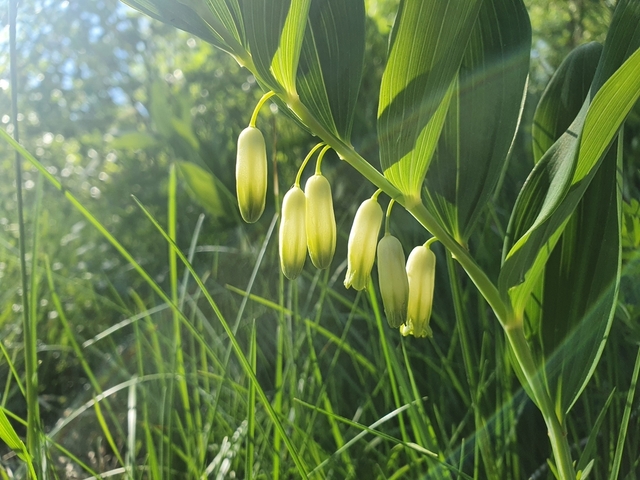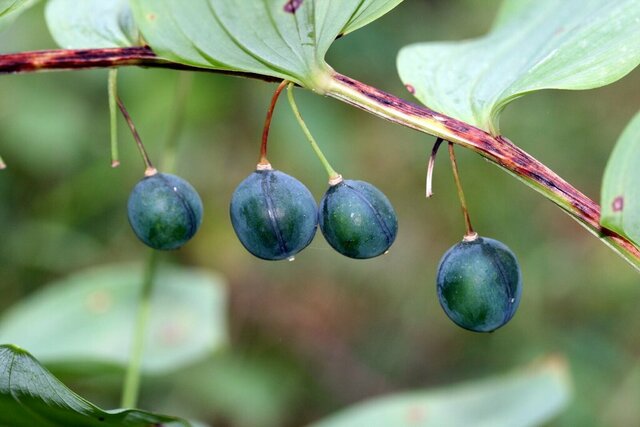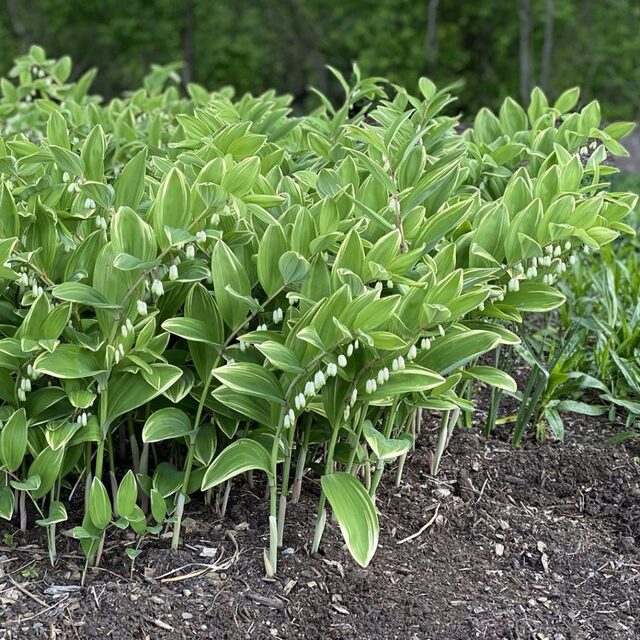Polygonatum odoratum, commonly known as Yu Zhu, Solomon’s Seal, or Sweet Solomon's Seal, is a perennial herb belonging to the Asparagaceae family. This medicinal and edible plant has been celebrated in traditional Chinese medicine (TCM) for centuries, renowned for its powerful health benefits, including moisturizing the lungs, nourishing the stomach, and strengthening the immune system. In this article, we will explore the key benefits, cultivation practices, medicinal properties, and other uses of this remarkable herb.
Kingdom: Plantae
Phylum: Angiosperms (Flowering plants)
Class: Monocots
Order: Asparagales
Family: Asparagaceae
Genus: Polygonatum
Species: Polygonatum odoratum
Yu Zhu
Solomon’s Seal
Sweet Solomon's Seal
This classification places Yu Zhu under the Asparagaceae family, which also includes other well-known plants such as asparagus and lily of the valley. Polygonatum odoratum is a perennial herb that grows in temperate regions, particularly in East Asia.

Polygonatum odoratum is a rhizomatous herb that thrives in temperate regions across Asia and Europe. It grows in a variety of habitats, ranging from mountain slopes, valleys, and woodlands to more cultivated environments. The plant typically grows between 20 to 70 cm tall, with long, slender stems and ovate leaves that alternate along the stem. Its flowers are typically bell-shaped, white or pale green, and bloom in the late spring to early summer. The berries of the plant turn blue-black when mature, containing several seeds.
In TCM, Polygonatum odoratum has been traditionally used to moisturize dryness, reduce inflammation, and balance the body's internal systems, making it a key ingredient in many herbal remedies.

Polygonatum odoratum is widely used for its medicinal properties, particularly in the treatment of conditions related to lung health, stomach disorders, and overall vitality. Here are the primary benefits of Yu Zhu:
Polygonatum odoratum is especially known for its ability to moisturize the lungs and relieve symptoms of dry coughs, lung dryness, and throat irritation. In TCM, it is believed to nourish the yin (cooling, moisturizing energy) of the lungs and stomach, making it an excellent remedy for conditions such as dry coughs, asthma, and bronchitis.
This herb is also beneficial for the digestive system, particularly in cases of dryness and heat in the stomach. Yu Zhu can help in soothing gastric ulcers, nausea, and stomach dryness, as it helps to increase fluid production and moisturize the stomach lining. It is also thought to be beneficial for digestive health and can improve appetite.
Polygonatum odoratum is considered an excellent tonic that helps boost the immune system. Regular consumption of Yu Zhu can help improve overall health and energy levels, particularly in individuals suffering from chronic fatigue, weak immunity, or post-illness recovery.
Yu Zhu has potent anti-aging properties due to its ability to nourish the yin energy. It is often used to combat signs of premature aging, particularly in the skin. Its ability to promote moisture retention in the body helps improve skin texture, elasticity, and overall health.
Polygonatum odoratum is not only used medicinally but also as a food source. The young shoots and roots of Yu Zhu are edible and commonly used in soups, stews, and herbal teas. In some regions, the root is dried and sold as a medicinal herb, while the young leaves and stems are eaten as vegetables. The rootstock of the plant is sweet-tasting, and it is often added to stir-fries, salads, or teas due to its mild, slightly sweet flavor.

Polygonatum odoratum is relatively easy to grow, especially in cool, shaded environments. Here are the key steps for cultivating Yu Zhu:
Yu Zhu thrives in temperate climates with well-drained, slightly acidic soils (pH of around 5.5 to 6.0). The plant prefers shady conditions and is best suited for growing in wooded areas or areas with partial shade. It can grow at altitudes ranging from 500 to 3000 meters above sea level, depending on the climate.
Ensure that the soil is loamy, well-draining, and moist but not waterlogged. The addition of organic matter such as compost will help provide the necessary nutrients for healthy growth. Avoid overly fertilizing the plant, as it prefers a more natural, nutrient-rich environment.
Polygonatum odoratum is typically propagated by rhizome division. Rhizomes should be planted in the fall or early spring, about 3 to 4 inches deep in the soil. Ensure the soil remains consistently moist, and the plant is provided with adequate shading during the hottest parts of the day.
Harvesting Polygonatum odoratum generally takes place in the late fall or early winter, when the plant’s rhizomes are fully developed. The rhizomes are carefully dug up, cleaned, and either used fresh or dried for later use in medicinal preparations.
The dried rhizomes are commonly made into pills, powders, or tinctures. They can also be used to prepare herbal teas or added to soups for added medicinal benefits.

In recent years, modern scientific research has begun to explore the bioactive compounds present in Polygonatum odoratum. It has been found to contain lily glycosides, mucilage, and polyphenolic compounds, which have demonstrated various health benefits, including anti-inflammatory, antioxidant, and anti-diabetic effects.
Researchers have also studied its potential in improving insulin sensitivity, which could be beneficial for those with type 2 diabetes. Additionally, the herb’s moisturizing effects make it an excellent candidate for skin care formulations.
Polygonatum odoratum, or Yu Zhu, is an incredibly versatile plant with a wide array of medicinal, nutritional, and therapeutic benefits. Whether used as a traditional herbal remedy, a culinary herb, or a garden plant, it offers remarkable health benefits. From its ability to moisturize the lungs and nourish the stomach to its immune-boosting properties, this herb remains a cornerstone in traditional herbal medicine across Asia. Its gentle nature and holistic healing properties make it a valuable addition to any wellness routine.
With its growing popularity in both the wellness and culinary industries, Polygonatum odoratum is becoming increasingly recognized as a natural solution for promoting overall health and vitality.
animal tags: Asparagaceae
We created this article in conjunction with AI technology, then made sure it was fact-checked and edited by a Animals Top editor.